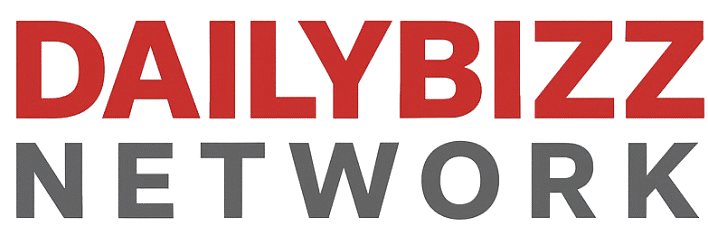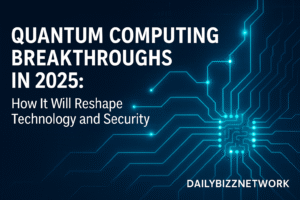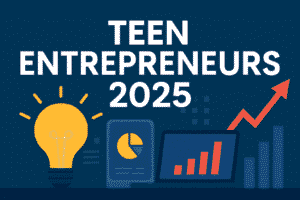Artificial Intelligence in 2025: Opportunities, Risks, and Global Impact

The Future is Now
Artificial Intelligence in 2025 is no longer a futuristic vision—it’s the world we’re currently shaping. From reshaping job markets to transforming healthcare, education, and even warfare, AI is rapidly evolving into the most disruptive force of the 21st century. With billions invested globally and tech giants like Google, Microsoft, OpenAI, and Baidu racing to dominate the field, understanding the opportunities and risks of AI in 2025 is critical for individuals, businesses, and nations.
Evolution of AI: How We Got Here
Over the past decade, AI has transitioned from experimental labs to real-world applications. From voice assistants and recommendation engines to autonomous vehicles and robotic surgeries, the groundwork laid between 2010 and 2020 accelerated AI adoption. In 2023 and 2024, breakthroughs in generative AI (like ChatGPT and MidJourney) demonstrated AI’s creative and cognitive capabilities, raising the bar for 2025 expectations.
The world is witnessing an explosion of AI use cases, largely due to advances in:
- Natural Language Processing (NLP)
- Computer Vision
- Reinforcement Learning
- Edge AI and low-latency models
Major Opportunities of Artificial Intelligence in 2025
1. Healthcare Revolution
AI-driven diagnostic tools can now predict diseases like cancer and Alzheimer’s with incredible accuracy. AI algorithms assist in personalized medicine, drug discovery, and robotic surgery. In 2025, remote health monitoring and predictive analytics will become standard, improving patient outcomes.
2. Education Personalization
Artificial Intelligence in 2025 will power adaptive learning systems that cater to students’ individual needs. EdTech platforms are using AI to create custom curricula and instant assessments, narrowing learning gaps and increasing accessibility.
3. Automation in Business and Manufacturing
Factories are increasingly powered by AI for predictive maintenance, quality control, and inventory management. AI also plays a critical role in optimizing supply chains, reducing waste, and improving efficiency.
4. Finance and Fraud Detection
Banks use AI to detect fraudulent transactions in real time. AI also supports robo-advisors, credit scoring, algorithmic trading, and customer service chatbots.
5. Sustainable Development & Climate Change
AI is used for environmental monitoring, disaster prediction, and energy optimization. Smart grids and AI-based forecasting help reduce carbon emissions and enable efficient renewable energy use.
Global AI Investments in 2025
According to McKinsey & Company, global AI spending is projected to exceed $500 billion by the end of 2025. The United States, China, and the European Union are leading the investment race, followed closely by India and Southeast Asia. Public and private sector collaboration is accelerating national AI strategies.
Countries are investing in:
- AI research and development hubs
- AI-focused education and training
- Smart infrastructure and defense systems
External Source: OECD AI Policy Observatory
The Geopolitical Impact of AI
AI development is shaping new global power dynamics. The rivalry between the U.S. and China over technological supremacy is increasingly focused on AI. China aims to become the world leader in AI by 2030 and is aggressively investing in AI chip manufacturing, data infrastructure, and education.
At the same time, international collaboration on ethical AI is gaining ground. The EU’s AI Act, aimed at creating a human-centric and trustworthy AI ecosystem, may serve as a global standard. Countries like India are balancing AI advancement with ethical and regulatory oversight.
Ethical Dilemmas and AI Bias
While the potential is massive, so are the concerns. AI algorithms have been found to reflect and amplify existing societal biases. For example, facial recognition technologies have shown racial and gender inaccuracies, sparking global debates.
Ethical challenges include:
- Discrimination in hiring and lending algorithms
- Deepfakes and misinformation
- Surveillance and privacy violations
- Accountability for autonomous decisions
To mitigate risks, organizations and governments are setting up ethics boards, transparency protocols, and bias mitigation tools.

The Future of Work and Job Displacement
AI is expected to both eliminate and create jobs. In 2025, many routine and manual jobs will be automated, affecting industries like manufacturing, retail, and transportation. However, new roles in AI maintenance, prompt engineering, and ethics supervision are emerging.
According to the World Economic Forum, AI will create 97 million new jobs by 2025 while displacing around 85 million. Upskilling and reskilling will be essential to navigate this transition.
Internal link: Read how Elon Musk is leveraging AI and automation at Tesla and SpaceX
AI in Military and Defense
Nations are integrating AI into defense for surveillance, battlefield management, and autonomous weapon systems. While AI enhances operational efficiency, it also poses ethical and strategic risks. The United Nations has been debating the regulation of Lethal Autonomous Weapon Systems (LAWS).
Israel, the U.S., and China are at the forefront of military AI development. In 2025, we may see increased international pressure for treaties to manage AI warfare.
AI in Arts and Media
From AI-generated music and paintings to deepfake videos and synthetic media, AI is reshaping creativity. Platforms like DALL-E, RunwayML, and Suno AI empower users to create professional-grade art and videos without traditional tools.
While this democratizes content creation, it also raises questions about copyright, originality, and creative employment.
Regulatory Frameworks: A Global Patchwork
Countries are taking different approaches to AI regulation. While the EU is implementing strict risk-based regulation, the U.S. prefers a more innovation-friendly, self-regulatory approach. China emphasizes state control and data sovereignty.
In 2025, we are likely to see:
- Cross-border data privacy agreements
- Standardized AI audit frameworks
- Ethical AI certifications for platforms and enterprises
What Companies are Leading AI Innovation?
Global Tech Giants:
- Google DeepMind: Pioneers in AGI (Artificial General Intelligence)
- OpenAI: Developers of ChatGPT, Codex, and DALL-E
- Microsoft: Integrated AI across Azure, Office, and GitHub
- NVIDIA: Dominant player in AI chips and GPUs
- Baidu and Alibaba: Leading AI in China
Startups in fields like healthcare, fintech, and agri-tech are also gaining ground with hyper-specialized AI tools.
Public Perception and Misinformation
Public trust in AI is mixed. While most people enjoy AI benefits (e.g., smart assistants, recommendations), they remain wary about data misuse and job loss. Misinformation spread through AI-generated content is a serious threat to democracy and journalism.
Improving AI literacy is critical. Schools and universities are introducing AI ethics and programming from an early age.
The Road Ahead: What to Expect Beyond 2025
Looking beyond 2025, we can expect:
- Smarter AI with fewer hallucinations and biases
- Brain-computer interfaces (like Neuralink)
- AI democratization in low-income countries
- Stronger alignment between AI goals and human values
Internal Link: Explore the inspiring journey of Bill Gates and his tech legacy
Conclusion
Artificial Intelligence in 2025 stands at a critical juncture. The next wave of AI development has the power to redefine industries, societies, and human potential. However, harnessing its full potential requires global collaboration, responsible innovation, and a human-centric approach.
By staying informed and adaptive, we can collectively ensure that the benefits of AI far outweigh the risks. The future of AI is not just in the hands of technologists, but in those of educators, policymakers, workers, and ordinary citizens alike.






